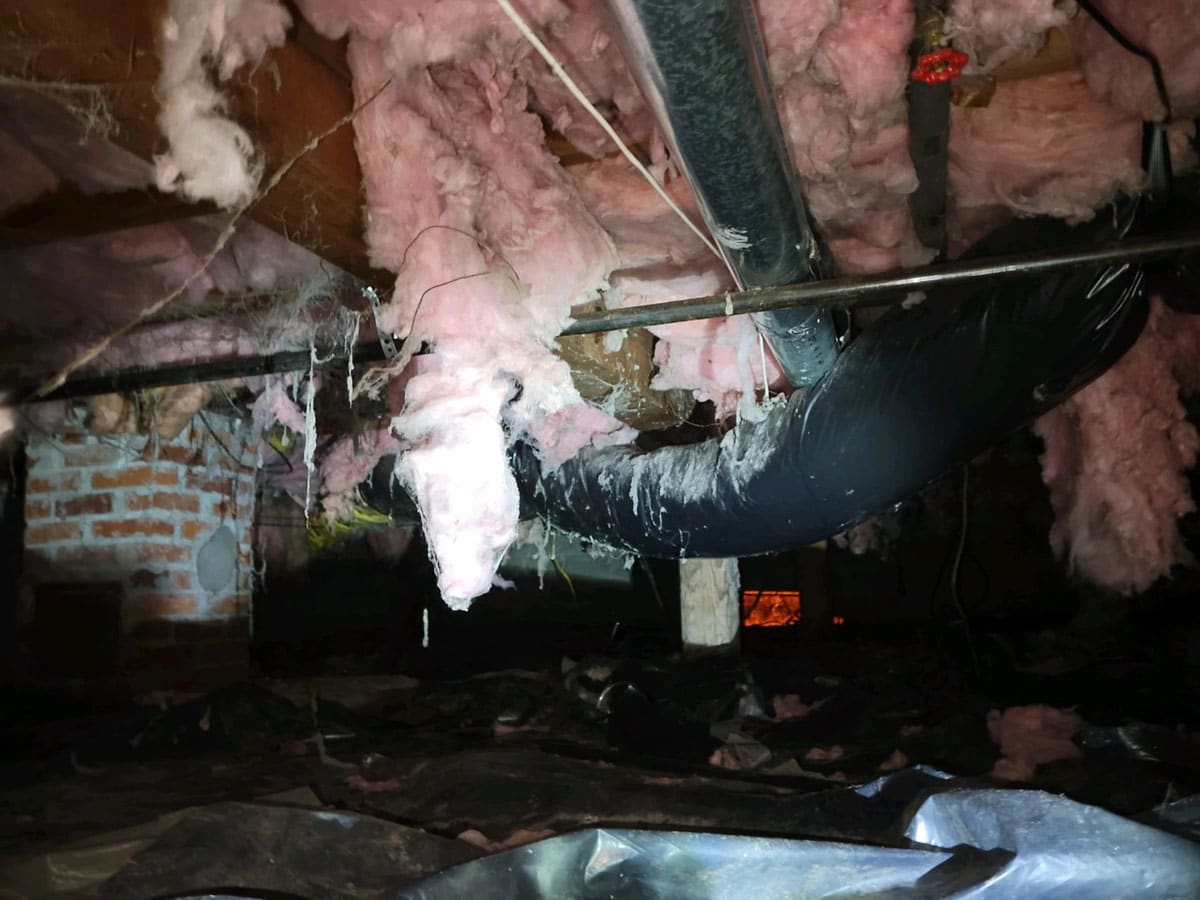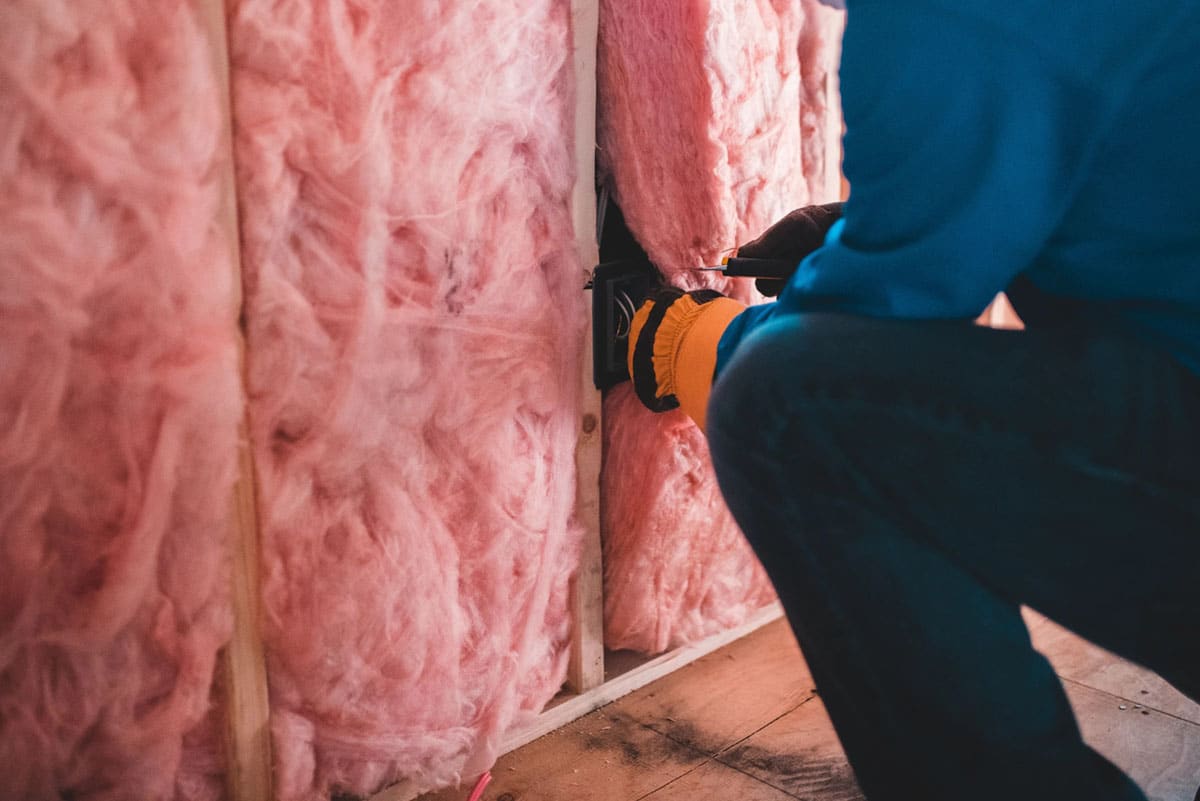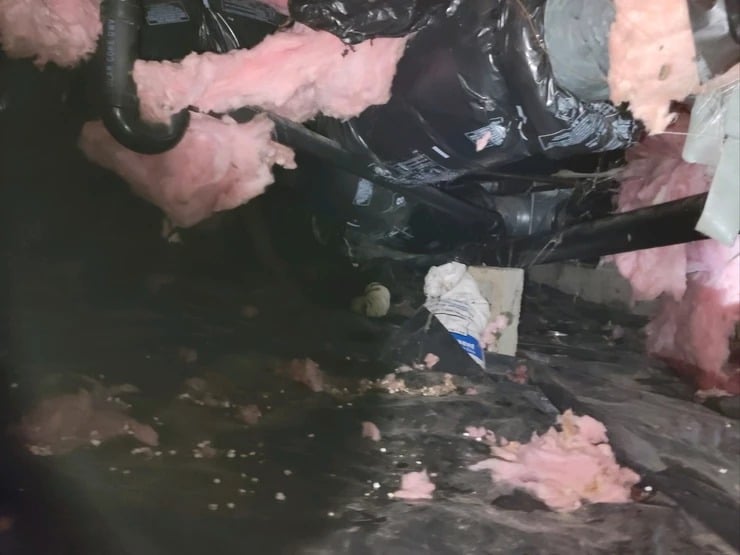As we continue to push through the winter months, most homeowners have already ventured into to their attics and basements to put away their decorations, with many having neglected to inspect the surroundings of their dedicated storage areas, in particular the state of their home’s insulation. Away goes the décor and disregarded goes the space. More often neglected than these two areas is the crawlspace (which hopefully no homeowner is storing valuables). Between the attic and the crawlspace, homeowners should be inspecting the condition at a minimum twice a year. This number should increase if the home has experienced rodent-related issues.
While the attic and crawlspace are cramped, dark, and vary in temperatures normally uncomfortable for human living, it is a little slice of heaven for rats and mice. One of the largest attractants to these spaces is your home’s insulation. Rodents are capable of chewing on fiberglass like bubble gum. It breaks apart easily, it is warm, and it makes for great nesting material. During the colder months of the year, your home’s insulation makes for a wonderful nest itself. Rodents will create tunnels throughout your home’s insulation and craft a cozy nook in which to breed, feed, and slumber.
When a rodent infests a home’s insulation it leaves behind more than unsightly burrowing holes. With all that movement between the insulation, a rodent will use this space as a latrine, urine soaking and defecating the material liberally. This can lead to unpleasant odors and result in breathing problems for both homeowners and pets. In addition to the health concern a rodent’s bodily fluid poses to your family in the realm of disease, many rodents who inhabit this space end up passing there as well, leading to the horrendous stench of decay.

There is another significant role rodents play in the cost adjustments to your monthly bills. Due to their destructive nature around your home’s insulation and the infatuation with its superb nesting quality, rodents chip away your properties’ energy efficiency. When these pests pick apart material for nesting or run throughout their burrowing holes eventually pushing down insulation, it affects your home’s heating and cooling costs. Even in the absence of rodents, insulation can become inefficient over time, but pests can certainly expedite that process. It is imperative to apply rodent control measures to keep your home well-regulated throughout the year.
Winter months present the heaviest periods of indoor rodent activity, and the season calls to pay closer attention to the sights, sound, and temperature of your property’s environment. Be sure to inspect your home for exclusion points leading into your attic and crawlspace. Check periodically around your property’s attic and crawlspace for damage in the form of drooping or fallen insulation, torn pieces, and be on the lookout for anything resembling rodent droppings. If you do discover damage or do not know what to look for, call a pest control professional to assist you. Dealing with a rat or mouse infestation should be handled by professionals well-versed in the behaviors of rodents and the dangers they present to you and your home or business.
The handling of your insulation should be conducted by an expert who specializes in maximizing your property’s cooling and heating efficiency. Do you have questions or concerns about the state of your insulation? Ask us to connect you to our dedicated partners for a free inspection and quote.





